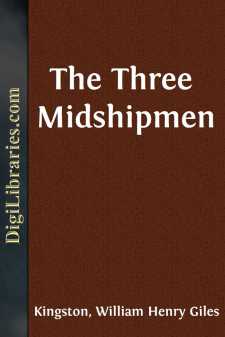Categories
- Antiques & Collectibles 13
- Architecture 36
- Art 48
- Bibles 22
- Biography & Autobiography 816
- Body, Mind & Spirit 145
- Business & Economics 28
- Children's Books 18
- Children's Fiction 14
- Computers 4
- Cooking 94
- Crafts & Hobbies 4
- Drama 346
- Education 58
- Family & Relationships 59
- Fiction 11831
- Foreign Language Study 3
- Games 19
- Gardening 17
- Health & Fitness 34
- History 1378
- House & Home 1
- Humor 147
- Juvenile Fiction 1873
- Juvenile Nonfiction 202
- Language Arts & Disciplines 89
- Law 16
- Literary Collections 686
- Literary Criticism 179
- Mathematics 13
- Medical 41
- Music 40
- Nature 179
- Non-Classifiable 1768
- Performing Arts 7
- Periodicals 1453
- Philosophy 66
- Photography 2
- Poetry 897
- Political Science 203
- Psychology 45
- Reference 154
- Religion 516
- Science 126
- Self-Help 86
- Social Science 82
- Sports & Recreation 34
- Study Aids 3
- Technology & Engineering 59
- Transportation 23
- Travel 463
- True Crime 29
Our website is made possible by displaying online advertisements to our visitors.
Please consider supporting us by disabling your ad blocker.
The Ferryman of Brill and other stories
Categories:
Description:
Excerpt
The Protestant Lovers—A Rival—Diedrich finds his Footsteps dogged—Finds a friend in the Ferryman—Threatened with the Inquisition—Flies to sea.
Not far from the broad and slow-flowing river Meuse stands the town of Brill. Flanders, in which it is found, formed at the period to which we refer a province of the dominions belonging to Philip of Spain. It was ruled with no very paternal hand by the Duke of Alva, who resided chiefly at Brussels. He had been employed for several years in burning, hanging, drowning, and cutting off the heads of his loving subjects, and torturing them in a variety of ways, in order to make them dutiful children of the Church of Rome, and of his master, Philip. Not with great success, for they still hated, with an unalterable deadly hatred, both one and the other. Brill at that time was not a populous city, nor did it possess much commercial importance; but it was well walled and fortified, however, and had a most commodious port. The inhabitants were peaceable, well-disposed people, who thought as much of themselves as the citizens of other cities of similar importance are apt to do. Among them was a young merchant—Diedrich Meghem. He had made several voyages of adventure, and was well accustomed to a seafaring life. Now prosperous, and hoping to become wealthy, he was about to settle down as a steady citizen on shore, with the expectation of some day, perhaps, becoming burgomaster of his native city. Diedrich, as young men are apt to do, looked about for a wife to share his good fortune, and had fixed his affections on Gretchen Hopper, a fair and very lovely girl, the daughter of a flourishing merchant. Hopper was supposed to be the possessor of considerable wealth—a dangerous distinction in those days. Duke Alva heard of the merchant Hopper’s reputed wealth, and had made a note to take an early opportunity of relieving him of a portion if not the whole of it. Hopper was known to hold the reformed principles, and though he was careful not to intrude his opinions in public, the duke’s advisers suggested that there would be no difficulty in bringing up an accusation of heresy against him. Diedrich was an ardent Protestant. His eye had long been fixed on William of Orange as the person best able to lift his country out of the present depressed condition in which she groaned.
Gretchen was a quiet, gentle girl, and she also held to the opinions of her father and her lover, in spite of her gentleness, with a determination in no way inferior to theirs. Gretchen soon found out that the honest, generous-hearted Diedrich loved her, and not long after this discovery she acknowledged to him that he possessed her entire heart. She had, however, other admirers, from whom she might have chosen a husband of a nobler family and of greater wealth than Diedrich. Among other pretenders to her hand was Caspar Gaill, a Fleming of good family, who, however, held to the Romish faith and supported the government of Alva. The merchant Hopper had a great regard for Diedrich, and was well pleased to find that he wished to become his daughter’s husband. He at once accepted him as a son-in-law, and gave the young couple his blessing....












